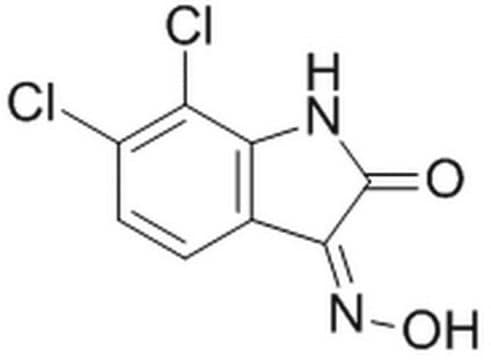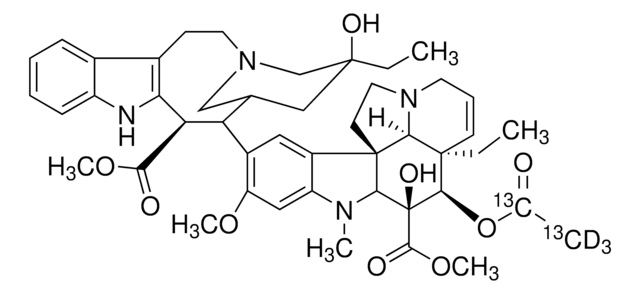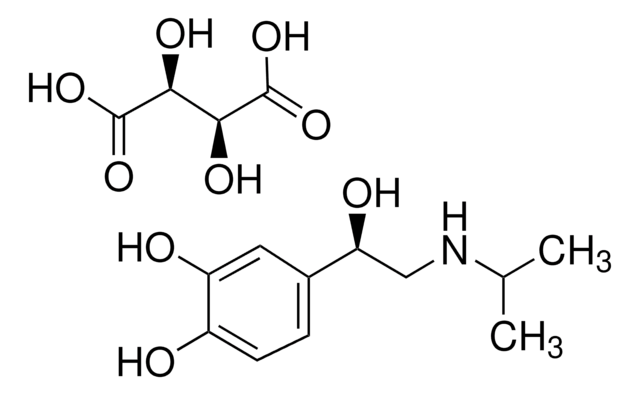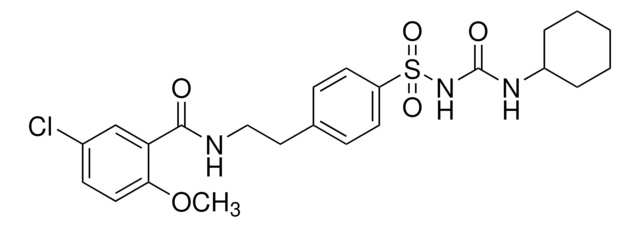Z3777
ZD7288 hydrate
≥98% (HPLC)
Synonym(s):
4-(N-Ethyl-N-phenylamino)-1,2 dimethyl-6-(methylamino) pyrimidinium chloride, ICI-D7288, N-Ethyl-1,6-dihydro-1,2-dimethyl-6-(methylimino)-N-phenyl-4-pyrimidinamine hydrochloride, ZD 7288
About This Item
Recommended Products
Assay
≥98% (HPLC)
form
powder
storage condition
desiccated
color
white to beige
solubility
DMSO: 10 mg/mL, clear
originator
AstraZeneca
storage temp.
2-8°C
SMILES string
O.Cl.CCN(c1ccccc1)C2=CC(=N/C)\N(C)C(C)=N2
InChI
1S/C15H20N4.ClH.H2O/c1-5-19(13-9-7-6-8-10-13)15-11-14(16-3)18(4)12(2)17-15;;/h6-11H,5H2,1-4H3;1H;1H2/b16-14+;;
InChI key
NCEDDDWQLCMZQG-UPONXUSQSA-N
Application
neocortical tissue. It has been used as hyperpolarization-activated and cyclic nucleotide-gated (HCN)-channel blocker to test the involvement of HCN channels in the phototransduction pathway.
Biochem/physiol Actions
Features and Benefits
Storage Class Code
11 - Combustible Solids
WGK
WGK 3
Flash Point(F)
Not applicable
Flash Point(C)
Not applicable
Certificates of Analysis (COA)
Search for Certificates of Analysis (COA) by entering the products Lot/Batch Number. Lot and Batch Numbers can be found on a product’s label following the words ‘Lot’ or ‘Batch’.
Already Own This Product?
Find documentation for the products that you have recently purchased in the Document Library.
Customers Also Viewed
Articles
Cyclic nucleotides like cAMP modulate cell function via PKA activation and ion channels.
Cyclic nucleotides like cAMP modulate cell function via PKA activation and ion channels.
Cyclic nucleotides like cAMP modulate cell function via PKA activation and ion channels.
Cyclic nucleotides like cAMP modulate cell function via PKA activation and ion channels.
Our team of scientists has experience in all areas of research including Life Science, Material Science, Chemical Synthesis, Chromatography, Analytical and many others.
Contact Technical Service















